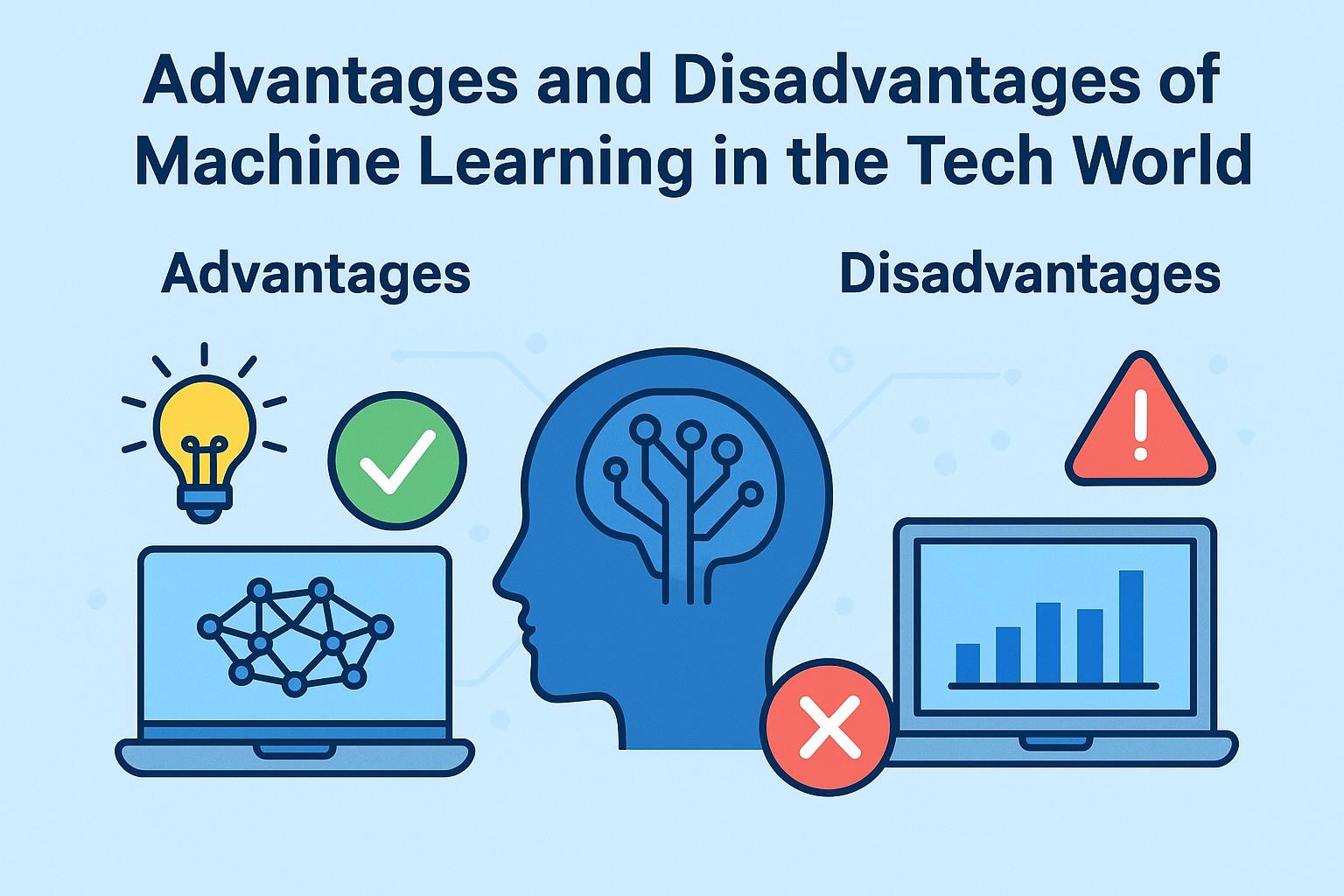Introduction
Machine Learning (ML) has become one of the most influential technologies in today’s digital era. From personalized recommendations on streaming platforms to fraud detection in banking, ML is driving innovation across industries. While the technology offers countless opportunities, it also comes with certain limitations.
In this blog, we will explore the advantages of machine learning and the disadvantages of machine learning to help businesses and students understand its true potential.
What is Machine Learning?
Machine Learning is a subset of Artificial Intelligence (AI) that allows systems to automatically learn from data, improve their performance, and make predictions or decisions without being explicitly programmed.
For example:
- Netflix recommends shows using ML algorithms.
- Banks detect suspicious activities through ML-powered fraud detection.
- E-commerce platforms suggest products based on user behavior.
Now, let’s dive into the advantages and disadvantages of machine learning in detail.
Advantages of Machine Learning
1. Automation of Tasks
One of the biggest advantages of machine learning is automation. It reduces the need for human intervention in repetitive tasks. For example, chatbots powered by ML can handle customer queries 24/7.
2. Data-Driven Insights
ML models analyze vast amounts of data and uncover hidden patterns. Businesses can use these insights to improve marketing strategies, optimize supply chains, or predict consumer behavior.
3. Continuous Improvement
As ML algorithms are exposed to more data, they evolve and improve their accuracy. For instance, speech recognition systems like Siri or Alexa become better the more they are used.
4. Wide Range of Applications
Machine learning has versatile applications across industries, including:
- Healthcare – disease prediction and drug discovery
- Finance – risk assessment and fraud detection
- Retail – personalized recommendations
- Manufacturing – predictive maintenance of equipment
5. Handling Complex Data
ML algorithms can process and analyze structured and unstructured data, such as images, videos, and text, which traditional methods often struggle with.
Disadvantages of Machine Learning
1. Data Dependency
One major disadvantage of machine learning is its reliance on quality data. Poor, biased, or insufficient data can lead to inaccurate predictions and flawed outcomes.
2. High Resource Consumption
Developing and training ML models requires powerful computational resources and significant storage. Small businesses often struggle with the cost of infrastructure.
3. Lack of Explainability
Many ML models, especially deep learning, operate as “black boxes.” Understanding how a model arrives at a decision is often challenging, which can lead to trust issues in sensitive applications like healthcare or law.
4. Risk of Overfitting
If an ML model is trained too well on a specific dataset, it may fail to generalize when exposed to new data. This reduces its real-world effectiveness.
5. Ethical and Privacy Concerns
Machine learning often involves collecting and analyzing personal data. Without proper safeguards, it can lead to privacy violations, data misuse, or biased decision-making.
Key Industries Leveraging Machine Learning
- E-commerce – Personalized shopping experiences.
- Healthcare – Diagnostic tools and patient monitoring.
- Banking – Credit scoring, fraud prevention.
- Transportation – Self-driving cars, route optimization.
- Entertainment – Content recommendations and audience analysis.
Future of Machine Learning
Despite the challenges, machine learning is here to stay. As technology advances, issues like explainability, bias, and computational costs will likely reduce. With ethical implementation, ML has the potential to revolutionize how we live and work.
Conclusion
Understanding the advantages and disadvantages of machine learning is essential for businesses, students, and professionals. While ML offers powerful benefits like automation, data-driven insights, and continuous improvement, it also faces challenges such as data dependency, high resource costs, and ethical concerns.
Ultimately, the success of machine learning depends on how effectively organizations address its limitations while leveraging its strengths.



